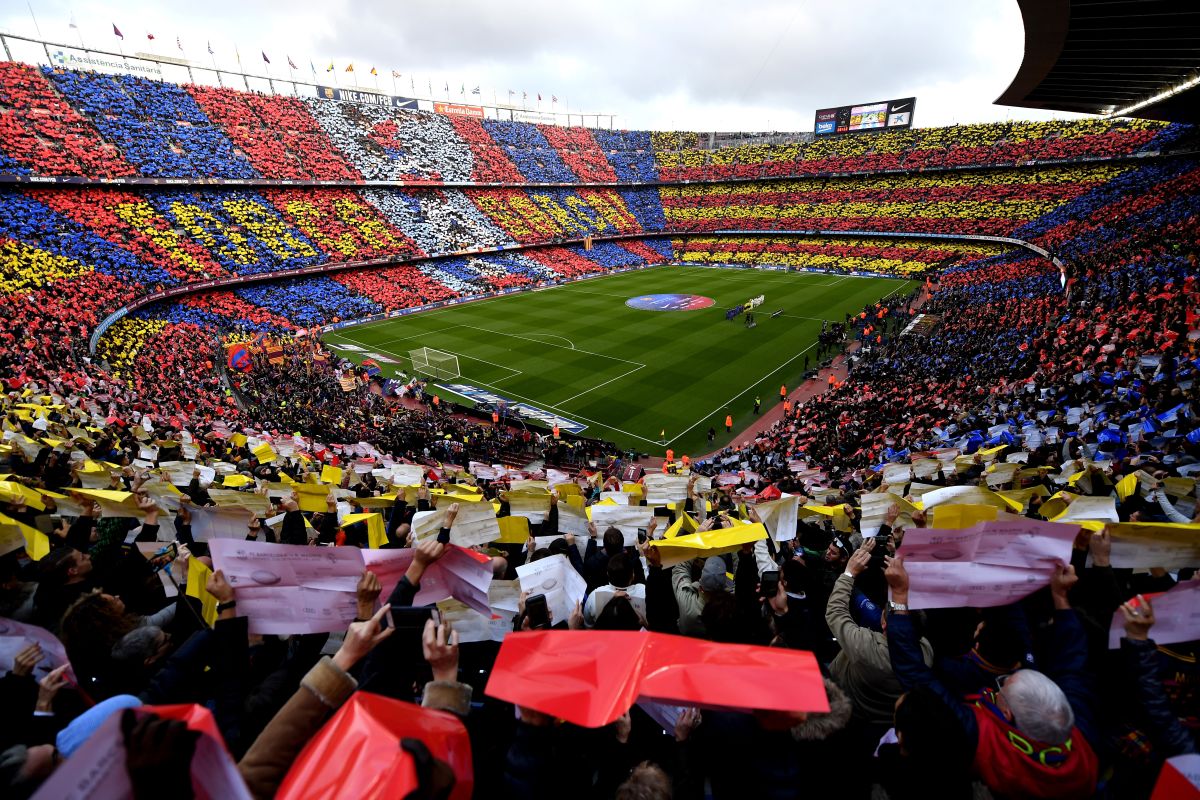The Barcelona City Council granted the building permit for the remodeling of the Camp Nou, which Barcelona expects to start next June, once this academic year is over. This will cause in the season 2023/24 the matches of the first football team are played at the Lluís Companys Olympic Stadium.
In an act held this Thursday, in the Saló de Cent of the Barcelona City Council, Ada Colau -mayor of the city- and Joan Laporta -president of the Barça entity- presented the details of the agreement of the governing commission of the consistory that will allow the start of the reform and expansion project of the stadium that the club expects to finish in the season 2025/26.
With this concession of the building license, which has a cost of just over 6 million euros ($6.3 million dollars), Barça has the green light to start renovating one of the key pieces of the Espai Barça, the project that foresees the remodeling of the stadium football, the construction of a new Palau Blaugrana and the urban reorganization of the surroundings of the Camp Nou.
The works will focus on this first course (2022/ 18) in remodeling the first and second stands of the Camp Nou, applying improvements in the technological field, adapting the surroundings and urbanize the exterior of the stadium, a first action that, according to the club’s forecasts, will be compatible with the presence of the public.
In the season 2023/23, it is planned, as Laporta announced, the demolition of the third tier , which will force the transfer of the football first team matches to the Lluís Companys Olympic Stadium.
The club has already launched a tender to adapt the facilities of the stadium located on the Montjuïc mountain, to waiting to close a definitive agreement with the City Council that establishes the conditions of use of the site.
According to the calendar presented, the first football team would play again at the Camp Nou in the season 2024/25 with a 50% of the capacity and the stadium works would not be finished until the course 2025/26.
The head of the entity has specified that a procedure will be created so that members who do not take advantage of a season ticket leave can go to the stadium in a “rotating and democratic” manner; as long as it is below its capacity or the matches are played at the Lluís Companys Olympic Stadium.
To execute the Espai Barça project, the club hopes to close this year the financing agreement of up to 1,500 million euros ($1,2014 million dollars) with Goldman Sachs that the assembly of compromisers approved last December in a referendum.
“We have the money to start the works with the bridging loan of 180 million euros ($ 190 million dollars) that we agreed with Goldman Sachs”, recalled the president of the Barça club.
Likewise, Barcelona has committed to presenting the definitive modifications of the initial reform project of the Camp Nou, promoted by the previous board of directors.
These improvements in matters of sustainability, innovation, technology and accessibility will mean a little modification issuance of the main license for the works of the future stadium, which must be approved by the City Council in the coming weeks.
In this way, Barcelona plans to install 18,15 square meters of photovoltaic panels on the roof of the stadium, as well as a geothermal and global heat and cold distribution system.
In addition, a system for reusing rainwater collected on the roof of the stadium is planned. It is also planned to “promote the circular economy and enhance biodiversity” with an increase of 15% of the forest mass of the enclosure. Its objective is to increase the capacity of the Camp Nou to 110,000 spectators.
“This agreement is very positive. Not only for Barça, but for the city; because it allows us to gain more public space, it opens the enclosure to the neighbors, it will generate more green areas and increase the number of bike lanes”, highlighted Ada Colau.
Along the same lines as the mayor, Laporta stressed that the Camp Nou will be a larger, more innovative and sustainable stadium with the that the club expects to become a benchmark in entertainment.
With this agreement, Barça expects to complete the epicenter of Espai Barça, a project that in 2014 approved by the partners in a referendum and which, for the time being, has meant the demolition of the Miniestadi and the construction of the Johan Cruyff Stadium in the Sant Joan Despí Sports City.
Then of the beginning of the works of the Camp Nou, Barça is working to present the construction project of the new Palau Blaugrana to the council.
